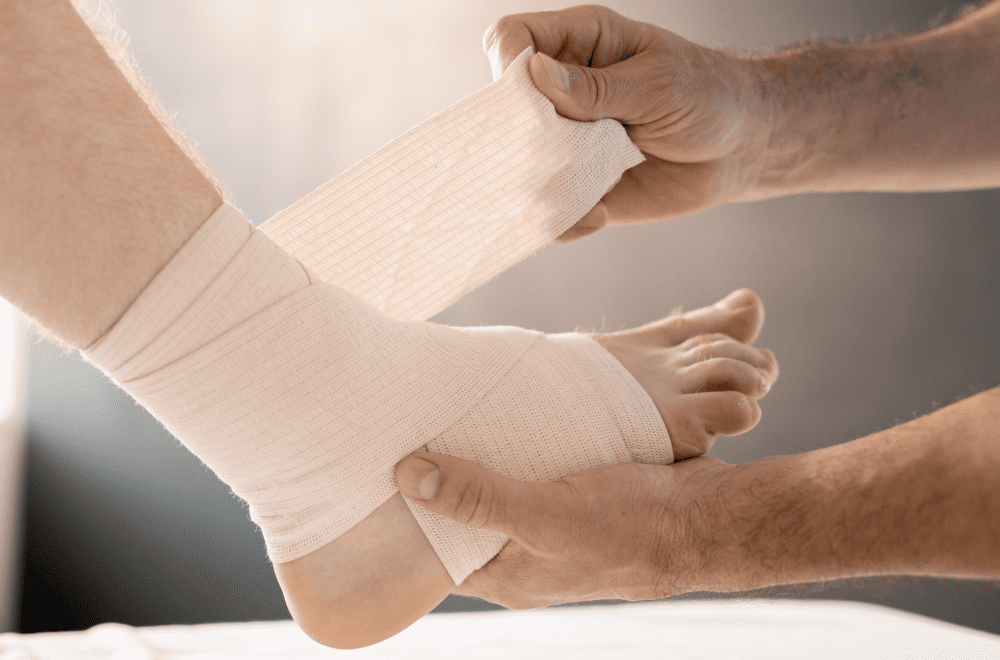Road to Recovery: 5 Things to Avoid When Healing from a Fracture
Accidents happen unexpectedly, and sometimes those accidents result in a broken bone. Whether it’s due to a slip-and-fall, a collision on the sports field, or a degenerative condition like osteoporosis, a fracture can happen to anyone.
Over 6 million fractures occur annually in the United States.
When you need expert medical advice in the Boise area, turn to Tadje Orthopaedics in Meridian, Idaho. Jared P. Tadje, MD, and our team provide comprehensive fracture care, guiding you through your recovery with personalized attention and a focus on your individual needs.
Navigating the healing process after a fracture requires a mindful approach. While you’re undoubtedly eager to get back to your normal routine, it’s essential to steer clear of anything that may hinder your recovery.
Here’s our list of the top five things to avoid when healing from a fracture.
1. Overdoing it With Activity
One of the biggest mistakes people make with a fracture is pushing themselves too hard, too soon after their injury. It’s tempting to want to get moving and regain your independence, but excessive movement can disrupt the healing process and even cause further injury.
Dr. Tadje provides specific instructions regarding weight-bearing restrictions, the use of devices like a cast or crutches, and any limitations on your movement.
Following his directions closely is crucial. Rushing your recovery can lead to setbacks and may ultimately prolong the time it takes for your bone to heal properly.
2. Staying Sedentary
Yes, it’s important to avoid overdoing it with a fracture, but spending weeks binge-watching movies on the sofa can be just as detrimental to the healing process. Gentle activity can contribute to your recovery by:
-
Improving circulation
-
Reducing stiffness and maintaining flexibility
-
Regaining balance
-
Boosting your mood
Dr. Tadje may recommend specific exercises or physical activities that are safe and beneficial for your particular fracture. If you have any questions about what you can or can’t do while healing, don’t hesitate to reach out to our team.
3. An Unbalanced Diet
Your body needs the right fuel to undertake a task like mending a broken bone. Fracture healing is a complex process that demands considerable energy and resources. Prioritize a balanced diet rich in nutrients — particularly calcium, vitamin D, and protein.
4. Ignoring Your Body’s Signals
Pain is your body’s way of communicating that something isn’t right. While you can expect some initial discomfort, you shouldn’t ignore persistent or increasing pain. It may signal potential complications, such as reinjury or infection.
If you experience any increase in pain, redness, swelling, or fever, contact Dr. Tadje immediately. By listening closely to your body and addressing any concerns, you can ensure a smooth and successful recovery.
5. Skipping Your Follow-Up Appointments
Regular check-ins with Dr. Tadje and his team aren’t just a formality — they’re a vital step on the path to a complete recovery. These appointments allow us to:
-
Monitor your healing progress: Physical examinations and imaging tests help us assess how well the bone is healing and identify any potential complications.
-
Adjust your treatment plan: As your recovery progresses, we may adjust your treatment plan to fit your changing needs. This may include modifying weight-bearing restrictions or introducing new exercises.
-
Address any concerns: You can discuss any questions or concerns you may have with Dr. Tadje, ensuring you have the information and support you need throughout your recovery.
At Tadje Orthopaedics, we understand that every patient is unique, so we tailor our approach to meet your needs. Call our office in Meridian, Idaho, today to schedule a consultation with our team at 208-515-2654.

